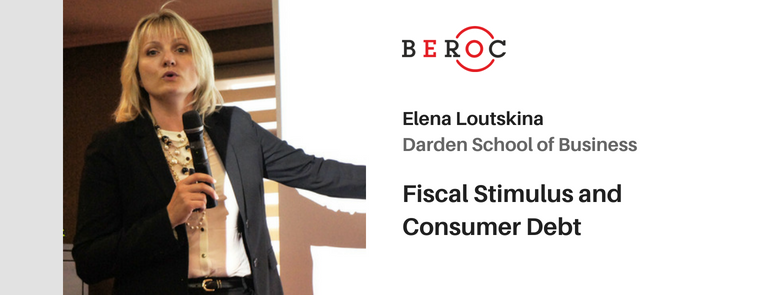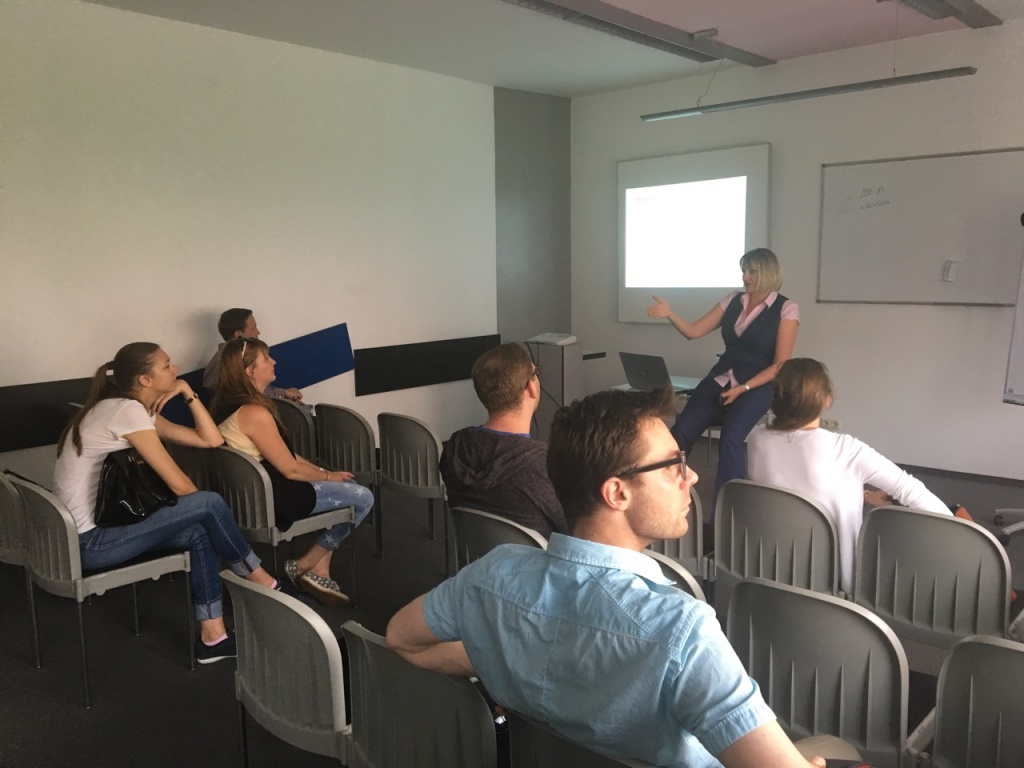Open Lectures and Seminars
Open Lecture with Elena Loutskina
An open lecture "Fiscal Stimulus and Consumer Debt" with Elena Loutskina was organized by BEROC in Minsk on July 12, 2018.

Elena Loutskina, associate professor of business administration, teaches in the Finance area at the Darden Business School (University of Virginia, USA. She has 12 years of teaching experience such courses as Entrepreneurs Finance, Venture Capital and Private Equity,Venture Velocity and Due Diligence in Seed Funds.She received faculty teaching awards and was recognized by students and Dean’s office for her teaching accomplishments.

Loutskina's research focuses on management of financial intermediaries. She originally started her work by exploring the impact of securitization on management of financial and non-financial companies. Over 12 year career, her research interest expanded to exploring more dimensions of commercial banks strategic management. Her research has addressed consumer finance, mortgage markets, small business lending, and regulation of financial intermediaries.
Alongside numerous academic conferences, she was invited to present her research at the Federal Reserve Bank, Federal Reserve Board, International Monetary Fund, European Central Bank and Banque de France. She was a visiting scholar at the Federal Reserve Bank of Cleveland, ECB, and Office of Financial Research. Her research was cited in the Financial Times, received Best Paper Awards and a number of grants, including fr om Kauffman Foundation and from Banque de France.
Prior to joining Darden, Loutskina taught at the undergraduate and graduate levels at Carroll School of Management, Boston College, wh ere she received the Donald J. White Teaching Excellence Award.
Open lecture description:
In the aftermath of the consumer debt–induced recession, policymakers have questioned whether fiscal stimulus is effective during periods of high consumer indebtedness. From one perspective indebted consumers would spend all newly found income on debt repayment thus decreasing the effectiveness of fiscal stimulus. From the other perspective, consumers dedicating most of their income to credit repayment might actually spend all of the newly found income and thus make fiscal stimulus more effective.
This study empirically investigates this question. Using detailed data on the U.S. Department of Defence spending for the 2007– 2009 period, we document that the fiscal stimulus is more effective in geographies with higher consumer debt. The results suggest that, in the short term (2007–2009), fiscal policy can mitigate the adverse effect of consumer (over)leverage on real economic output during a recession. We then exploit detailed microdata to show that both heterogeneous marginal propensities to consume and slack-driven economic mechanisms contribute to the debt-dependent multiplier.
